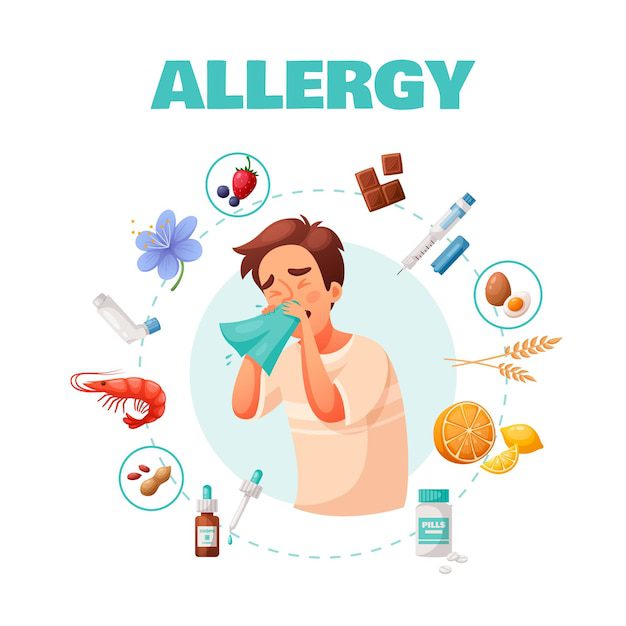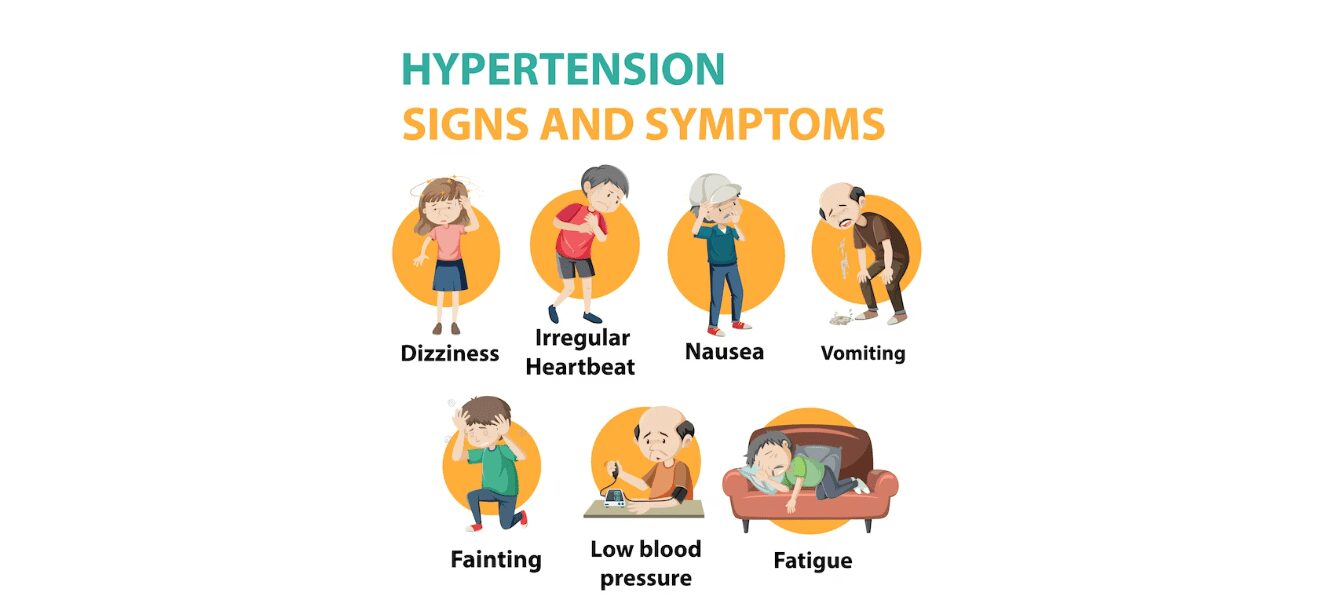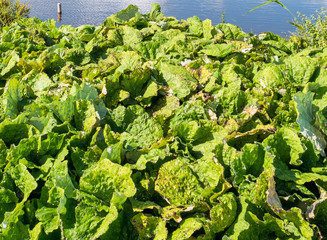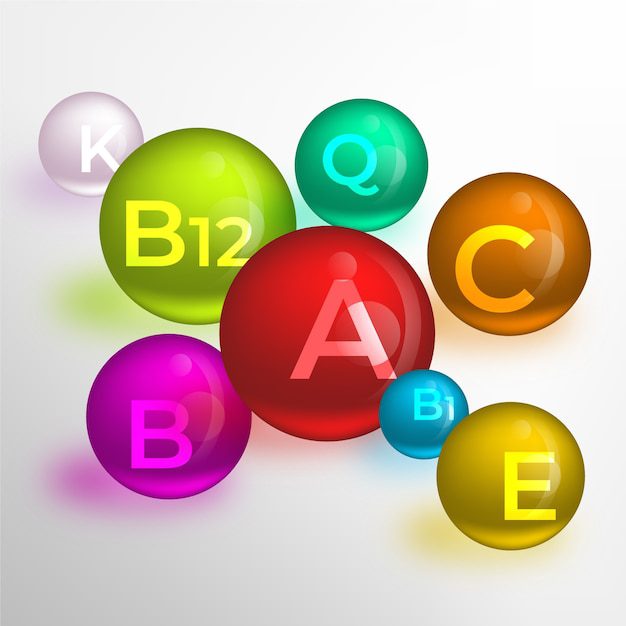Natural Alternative To EpiPen
In today world allergy is a common problem. Many of the people are affected in daily life. For those with severe allergies, the EpiPen has been a lifesaver, providing quick relief during anaphylactic emergencies. However, what if you’re looking for a natural alternative to the EpiPen? In this comprehensive guide, we will explore various natural options to manage anaphylaxis safely. From understanding anaphylaxis to discovering five powerful natural antihistamines, we’ve got you covered. in this article I shall Explore Natural Alternatives to the EpiPen
What Are Allergies?

An allergy is defined as any immune reaction caused by antigens that leads to physical discomfort. Allergies are caused by over-reactive immune responses that cause damaging reactions in the body, typically including pollen found outdoors, animal fur, dust or food items that aggravate an allergy.
Allergy symptoms develop when your body produces histamine to counteract allergens. Your immune system also contributes to allergic reactions by producing immunoglobulin E (IgE) antibodies.
There are various broad categories of allergies, such as:
Seasonal allergies (also referred to as rhinitis or hay fever) usually worsen with pollen levels increasing or changing, like during spring or fall; and persistent allergies that persist year-round (food, drug/medication allergies and indoor allergies such as mold or dust). Skin or eye allergies may also trigger reactions.
Pet/animal allergies, such as to dogs/cats and insects. Anaphylaxis – which can be life-threatening when in response to multiple allergens
Symptoms

Allergic symptoms vary between people and often depend on what triggers an allergic response and its severity.
These are common symptoms of allergies:
1) Sneezing:
It is common cause of allergy especially in response to pollen or dust.
2) Runny nose:
Allergies can cause a runny or congested nose. this will make difficult to breathe.
3) Watery Eyes:
Your eyes may become watery in response to allergens.
4) Coughing:
There may be cough in the patients of allergies.
5) Skin Reactions:
There will be different types of skin reactions.
What are Causes of Allergies?
Pollen:
Pollen are the common causes of allergy. Some people may affect badly by pollens.
Dust Mites: These microscopic creatures thrive in household dust and can trigger allergies, especially in those with dust mite sensitivities.
Pet Dander:
Proteins found in pet skin cells, urine, and saliva can lead to allergic reactions in sensitive individuals.
Insect Stings:
Bee, wasp, hornet, and fire ant stings can cause severe allergic reactions in some people.
Certain Foods:
Common food allergens include peanuts, tree nuts, dairy, eggs, soy, wheat and fish.
Medications:
Some individuals may be allergic to specific medications, such as penicillin or non-steroidal anti-inflammatory drugs (NSAIDs).
Latex:
Latex allergy can develop from repeated exposure to latex-containing products, such as gloves or balloons.
Mold:
Mold spores in the air or in damp environments can trigger allergic reactions.
What Are Conventional treatments for allergies?
Conventional treatments for allergies are those widely accepted and practiced within the medical community. These treatments aim to reduce or eliminate allergy symptoms.
Natural Alternative To EpiPen should be used to cure allergies.
1. Antihistamines

Antihistamines are one of the most common and effective treatments for allergy. As the name indicates that anti means against. They work against the histamine. They work by blocking the action of histamine, a chemical released by the immune system during allergic reactions. By doing so, antihistamines can relieve symptoms such as sneezing, runny nose, itching, and watery eyes.
There are two main types of antihistamines:
First-Generation Antihistamines:
These medications, such as diphenhydramine are often taken before bedtime.
Second-Generation Antihistamines:
These newer medications, including cetirizine and loratadine are less likely to cause drowsiness and can be taken during the day.
Decongestants
Decongestants are used to relieve nasal congestion and sinus pressure associated with allergies. They work by constricting blood vessels in the nasal passages. They reduce swelling and allowing for easier breathing.
Corticosteroids
Corticosteroids, available as nasal sprays, inhalers, creams and pills are powerful anti-inflammatory medicines that effectively manage symptoms such as nasal congestion, wheezing and skin rashes. They work by decreasing inflammation within nasal passages, lungs and skin to alleviate these issues and alleviate associated symptoms like congestion, wheezing and skin rashes.
Immunotherapy
Immunotherapy is a long-term treatment option that aims to desensitize the immune system to specific allergens. During immunotherapy, individuals receive gradually increasing doses of allergens, helping the immune system build tolerance and reduce allergic reactions over time.
What is Anaphylaxis?

It is a severe and potentially life-threatening allergic reaction. It occurs rapidly after exposure to an allergen. It affects multiple body systems, often causing a sudden drop in blood pressure, difficulty breathing, and swelling of the throat and face. Common Triggers of Anaphylaxis
Anaphylaxis can be triggered by various allergens, including foods (e.g., nuts, shellfish), insect stings, medications (e.g., penicillin), and latex.
Symptoms of Anaphylactic Shock
Symptoms of anaphylactic shock can vary but may include:
– Swelling of the face, lips, or tongue
– Difficulty breathing or wheezing
– Rapid or weak pulse
– Hives or skin rash
– Nausea and vomiting
– Loss of consciousness
Why the Need for Alternatives to EpiPen?
While the EpiPen is highly effective, some individuals find natural alternatives due to concerns about its side effects or the desire for holistic approaches to healthcare.
How to Recognize Anaphylaxis?
Identifying anaphylaxis early is crucial for prompt treatment. If someone experiences the following symptoms after exposure to an allergen, seek immediate medical attention:
Difficulty breathing: Wheezing, shortness of breath, or tightness in the chest.
Swelling: Especially of the face, lips, or throat.
Rapid heart rate: A quick, pounding pulse.
Confusion or altered mental state: Feeling dizzy or lightheaded.
Loss of consciousness: Fainting or passing out.
What Can Be Used Instead of an EpiPen?
Natural Alternatives for Anaphylaxis
4 natural antihistamines for allergies
Several natural alternatives can help manage anaphylaxis. These include:
1)Butterbur:

Butterbur is a plant extract derived from a shrub native to Asia, Europe and parts of North America. People commonly use butterbur for treating migraines and allergic rhinitis – more commonly referred to as hay fever.
According to the National Center for Complementary and Integrative Health (NCCIH), butterbur may possess antihistamine properties.
A 2022 review of 16 randomized clinical trials on 10 herbal products suggests that butterbur could be an effective herbal treatment for hay fever.
2)Bromelai

Bromelain is an enzyme found naturally in pineapple core and juice and also available as a nutritional supplement.
Bromelain is an effective natural solution for relieving sinusitis symptoms as well as inflammation following injury or surgery.
Bromelain may cause adverse reactions in certain individuals when taken orally as supplements, including:
Changes in menstruation and digestive upset have contributed to an increased heart rate and should be monitored carefully.
3)Probiotics

Probiotics (or probiotic-containing microorganisms) may provide health benefits by helping maintain a balanced environment in your gut bacteria.
It helps strengthen an individual’s immune system . It assist the body in fighting against allergies more efficiently.
NCCIH Trusted Source states that evidence for probiotics remains mixed and some forms may offer assistance while others might not.
4)Quercetin:

It is an antioxidant flavonoid found in many plants and food products. It may help alleviate allergy symptoms by supplementing with quercetin in one’s diet. Research indicates that by the addition of quercetin symptoms may be reduced.
Research Trusted Source reports that quercetin may possess anti-allergic and antihistamine properties.
How Do You Stop Anaphylaxis Without an EpiPen?
Immediate Steps to Take During Anaphylactic Shock
If you don’t have access to an EpiPen during an allergic reaction, follow these steps:
1. Call 911: Seek immediate medical assistance.
2. Stay Calm: Panicking can worsen symptoms. Try to remain as calm as possible.
3. Administer Antihistamines: If available, take natural antihistamines or any prescribed allergy medications.
4. Lie Down: Lie flat with your legs elevated to improve blood flow.
5. Avoid Triggers: If the trigger is known (e.g., a specific food), avoid further exposure.
Five Natural Antihistamines
The Role of Antihistamines in Managing Allergies
Antihistamines block the action of histamine, a chemical released during an allergic reaction. Here are five natural sources of antihistamines:
1.Nettle Leaf: Nettle tea or supplements may reduce allergy symptoms.
2. Quercetin: Found in apples, onions, and green tea, quercetin has antihistamine properties.
3. Bromelain: Pineapple-derived bromelain may help with sinusitis and hay fever.
4. Butterbur: This herb may relieve symptoms of hay fever.
5. Vitamin C: Known for its immune-boosting properties, vitamin C may reduce allergy severity.
Precautions and Dosage
It’s crucial to consult a healthcare professional before taking natural antihistamines, as they can interact with medications or have side effects.
The Strongest Natural Antihistamine
Exploring the Most Potent Natural Antihistamine
Among natural options, quercetin is often considered the most potent natural antihistamine. It can be particularly effective for managing allergies and reducing symptoms.
How It Compares to Traditional Antihistamines
While quercetin is powerful, traditional antihistamines like cetirizine or loratadine may still offer faster relief during severe allergic reactions. Consult your doctor to determine the best option for you.
Lifestyle Changes for Allergy Management
Diet Modifications
Elimination Diet: Identify and avoid trigger foods.
Probiotics: Maintain gut health to support your immune system.
Reducing Exposure to Allergens
Allergen-Proofing: Make your home allergy-friendly.
Air Purifiers: Use HEPA filters to reduce airborne allergens.
Stress Management
Stress can exacerbate allergies. Explore relaxation techniques like yoga or meditation to minimize stress-related symptoms.
that was all about Natural Alternatives to the EpiPen.
